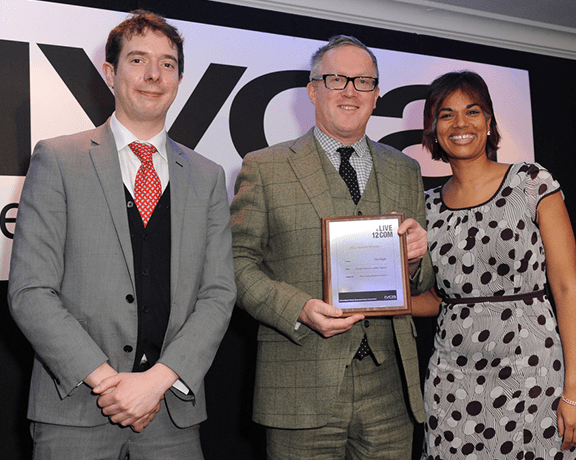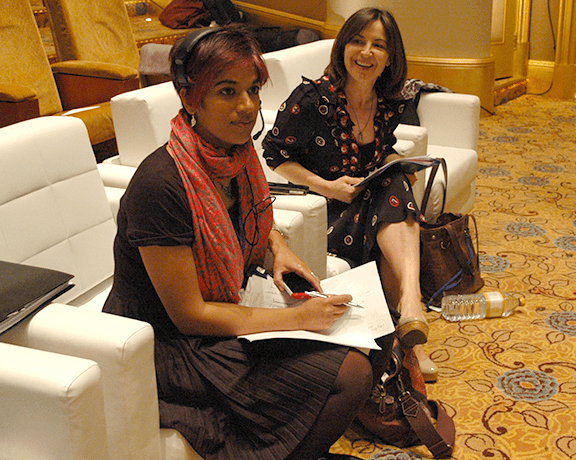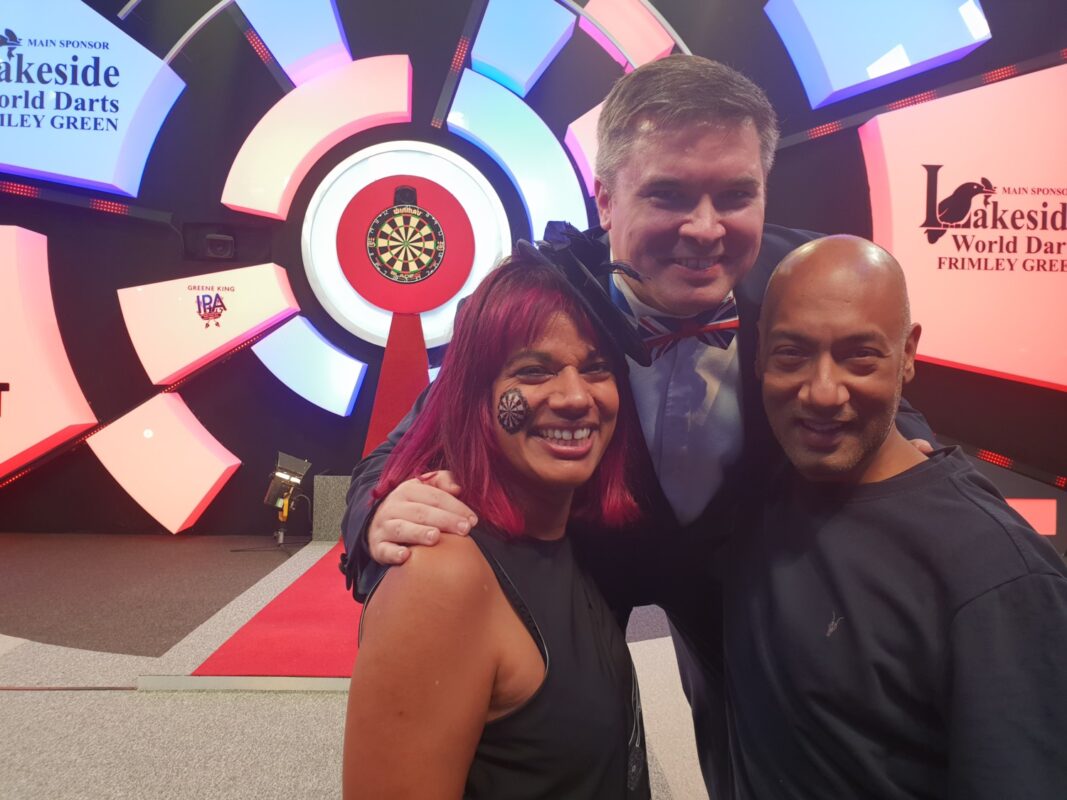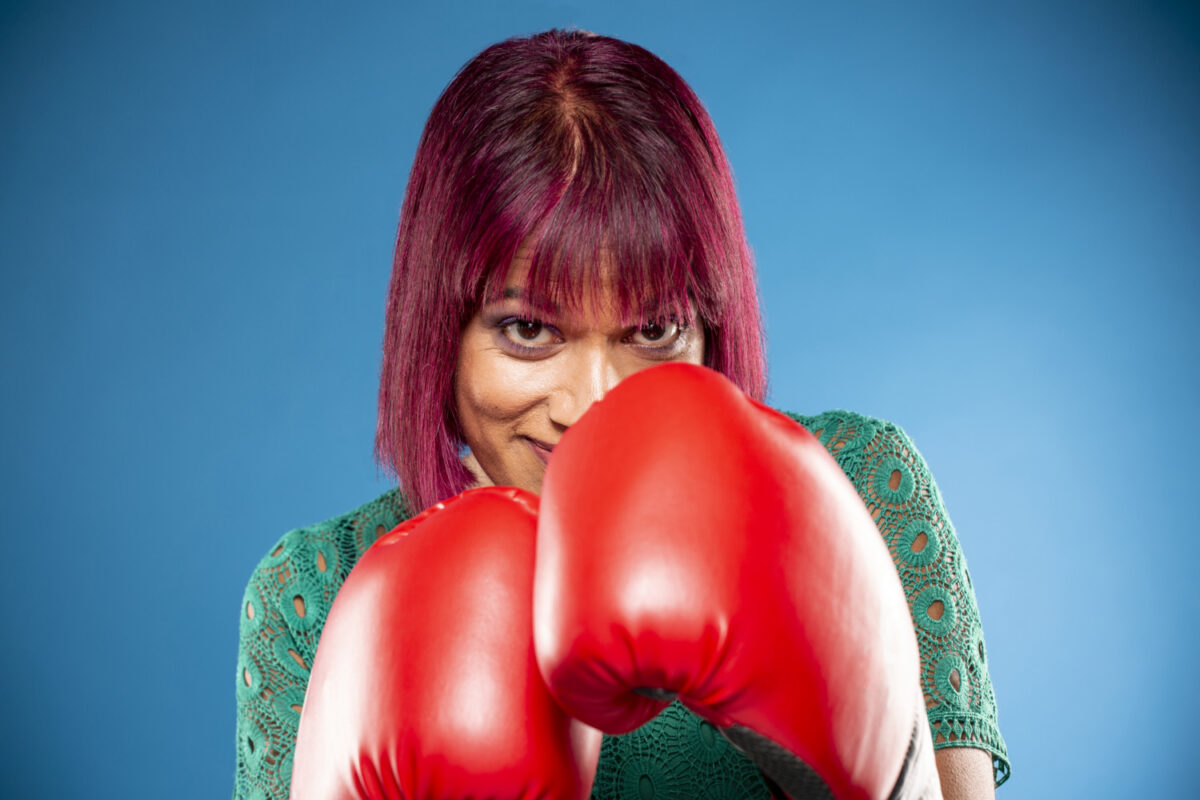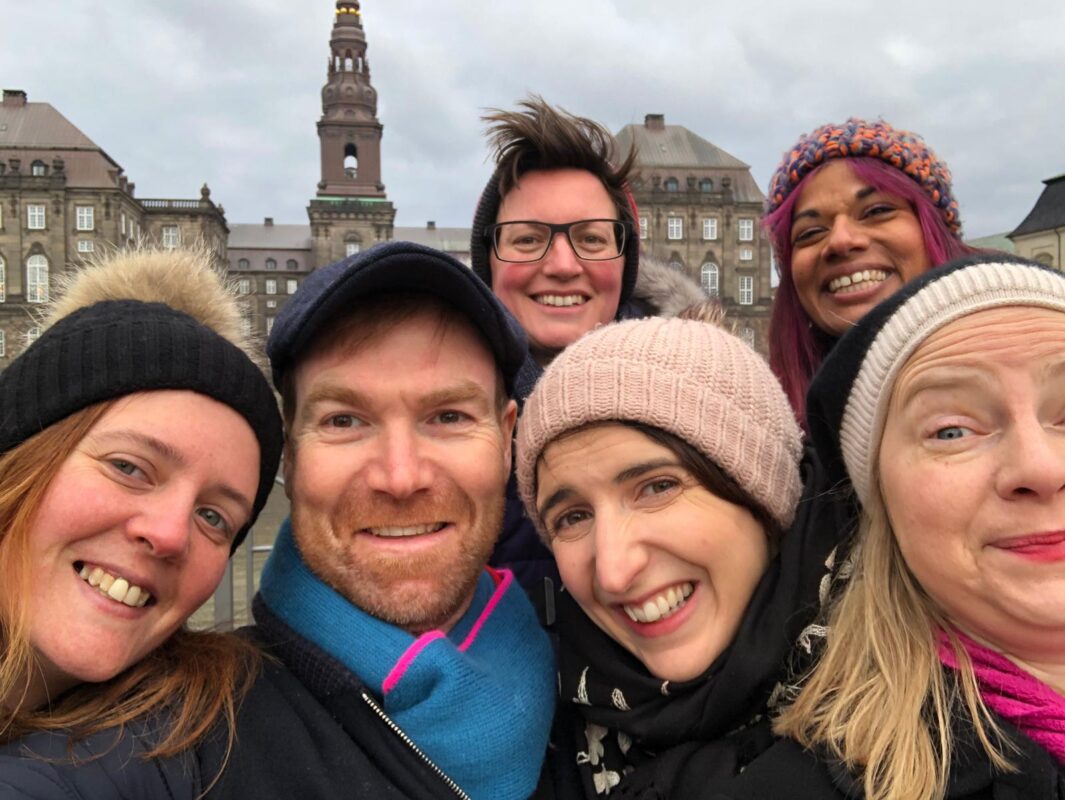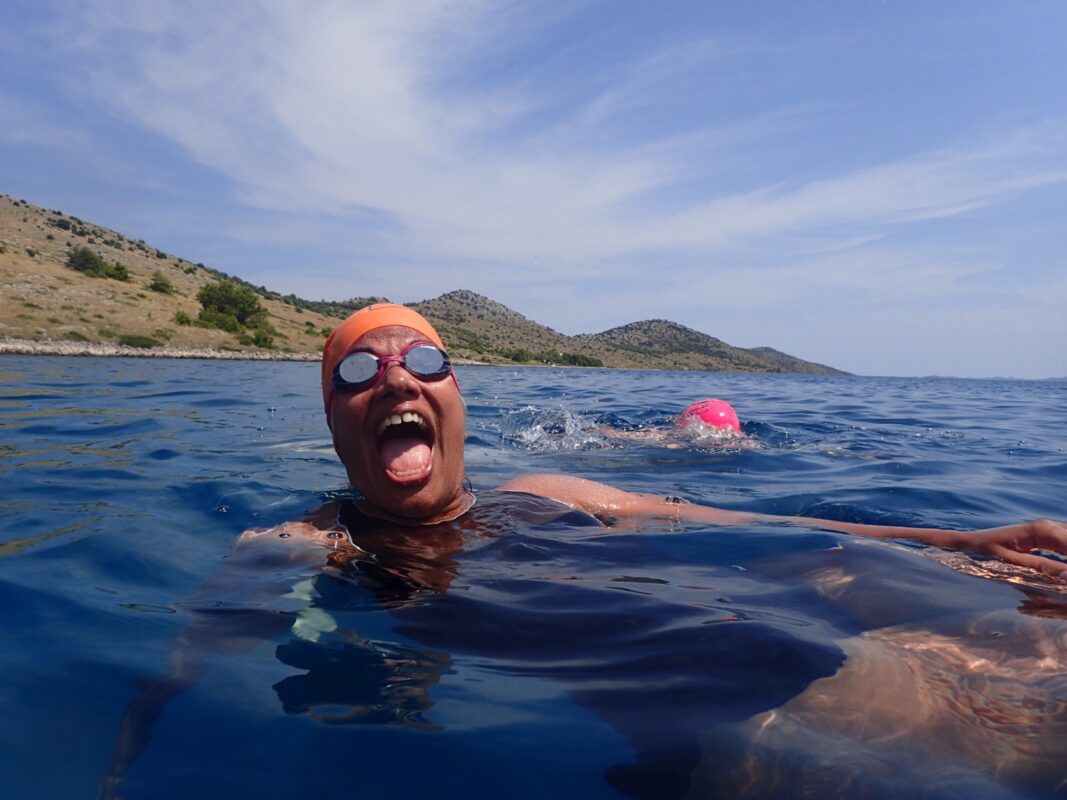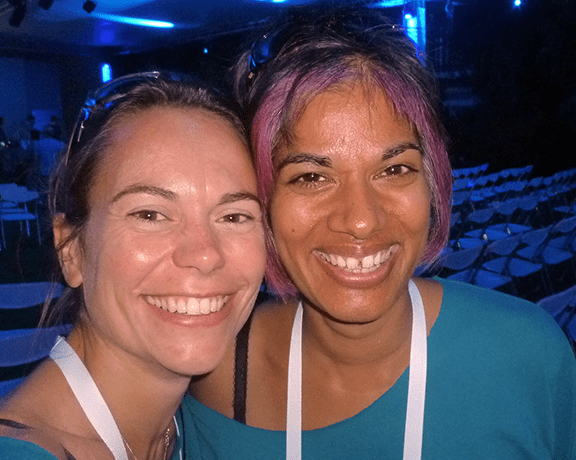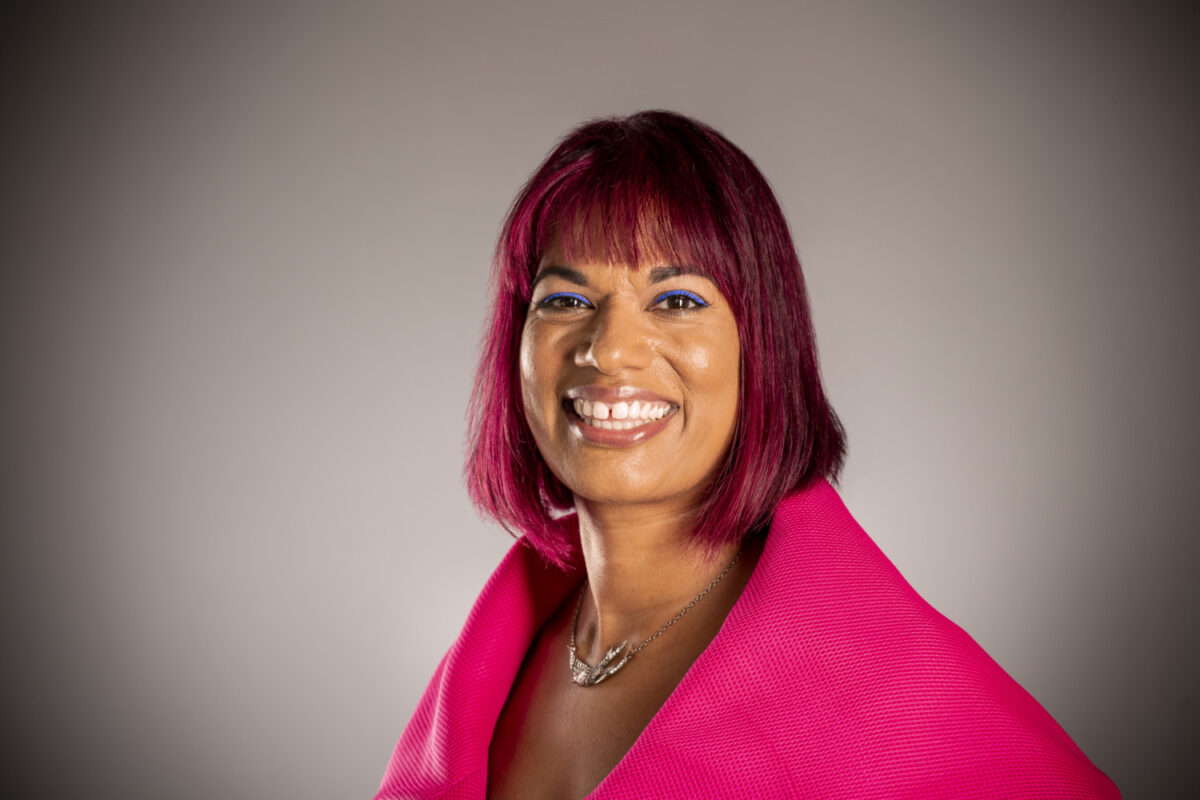Meet Rosanna Machado CEO and founder of Zebra, she is a specialist in the co-ordination of large-scale events as G8 Summit and London Olympic Bid taking a strategic overview of complex projects for corporate, governmental, and charitable organisations in the UK.
Who is Rosanna? Define yourself
I am someone who follows my heart and I get the greatest joy from making a difference to someone’s life - whether that is smiling at a stranger or developing a member of staff. I am full of energy and throw myself in to whatever I do. The two skills that have been most useful to me in life, and particularly at work, are empathy and improvisation – I always thought that I was a planner, but often the best things come out of reading a situation and adapting behaviour based on what I see. I have realised that I take risks and push myself into my discomfort zone more than I give myself credit for, both in terms of work and trying new hobbies.
“ I find it important to give back as it gives me a sense of fulfilment. It puts things in perspective and allows me to use my skills in a different way”.
I have worked in the events industry for 20 years, running conferences and large-scale public events. Since 2019, my work has expanded into the learning and development field – I run workshops on emotional intelligence, I lecture in events and I am currently studying to be an Executive Coach. This is where I am today but ask me in a year and things could well change – I love the fact that we can all rewrite the next chapter of our story!
You have a name that sounds very Latino, what are your roots?
Both sets of my grandparents are from Goa in India, which was a Portuguese colony, hence my Portuguese surname. My mother grew up in Kenya and my father grew up in Zanzibar and they met in London. Despite my exotic roots, I am a born and bred Londoner!
How were you as a kid?
I was a swot and studied hard. I used to get stressed when I couldn’t do things or when something didn’t go my way. I was (and I still am) very organised and had a list for everything. I even cut out the song lyrics from Smash Hits magazines and filed them alphabetically! I was also musical, playing the piano and viola. From my teenage years, I chilled out and I have a much more even temperament compared to when I was younger.
You hold a Bachelor of Arts Hons, Economics at the University of Cambridge, why did you choose that course of study?
I knew I wanted to go to university but didn’t know what to study. I picked Economics because it was the most business-related of my A-levels. I loved my time at Cambridge, but in truth, I hated my course. In hindsight, I would have studied History or Psychology. However, it was an amazing three years, and I am still very close to lots of friends that I made during that time in my life.
“Be kind to yourself and develop a self-care routine that works for you”
You have worked in event management and Communications in different companies in the UK, how did you jump from that point to found your company Zebra?
I never planned to work for myself but after four years with my first events company, I left and ended up freelancing in the industry for nine years. It was a very liberating feeling - working for myself and dropping into various production companies for different projects. It was a time where I could really develop my work persona (which is not much different from my personal persona). My last freelance role was running the Thames Diamond Jubilee River Pageant in 2012 which was a life-changing project and the biggest event I have ever run. Had I known how huge it was when I took it on, I would have been daunted! The biggest thing I learnt was that relationships are everything and with good relationships, you can make things happen. After that project, I was approached to be COO of another agency which was an exciting board position, building up their events division and restructuring the company. Once I had been COO, I felt that I had both the event experience and board level experience of running a company, so I was ready to fully launch Zebra and focus on working directly with corporates.
Talking about Zebra, what does it make unique in the market?
I put together the best people on projects and we are not fazed by anything thrown our way. We aim to constantly surprise and delight our clients with what we deliver. We also believe that the experience of working with us should be fun and enjoyable.
I constantly evolve the business to adapt to what people want and need. It started with running conferences and events, and now I also offer event strategy consultancy, and creative development for events. Since 2019 I have been running workshops and lecturing. I also write blogs on LinkedIn with my tips around self-awareness and emotional intelligence. The key is to keep learning and keep evolving and to work with great people who share your values.
You have organized top events as G8 Summit, Thames Diamond Jubilee Pageant, London Olympic Bid, among others, you are a lecturer at The Event Academy, Group Coach for NMIOB. What´s the recipe for your success?
I love having a varied portfolio - it is fascinating, and it pushes me to think differently and adapt for each client. I learn something new from each project and I continue to grow as an individual. It’s also about knowing what you know and what you don’t know and bringing in experts to get the best outcome. If I wake up each day and still love what I am doing, then I will keep doing it.
You are a very busy woman and still, you have time to support different non-profit organizations as The London Community Foundation, Founders4Schools and The Vision. What does it drive you?
Personally, I find it important to give back as it gives me a sense of fulfilment. It puts things in perspective and allows me to use my skills in a different way. It brings me a lot of joy and my life would not be as rich if I didn’t support these types of organisations. I think it’s useful to think about what really makes you feel fulfilled and see how to build this into your life.
What is the biggest lesson you have learned over the years?
Treat everyone you meet with respect. In life, relationships are everything and I think respect is a good basis to build a trusted relationship.
What does a normal workday look like for you?
There is no normal workday, but it is usually a combination of meetings, phone calls, developing creative ideas or workshops, planning an event and developing new business.
In lockdown, I haven’t been working so I’ve had more time for reading, studying, writing and exercising. It has been a great time for me as I feel I have learnt a lot and adapted my routine. Whilst we are creatures of habit, I am always amazed at how quickly we can adapt when we have to!
“You have to make choices based on your values and goals at any given moment”
What do you love most about your job? & what is the most difficult part?
I love the variety and the people I work with and the fact that challenges are constantly thrown our way as there is a real sense of satisfaction when you come up with a solution.The difficult part is the time pressure. You must get things done in a certain timeframe, no matter what. Although that can be difficult, it is also exhilarating, and you have a real sense of achievement and high point at the end of the event. You do also have a real dip in energy after the event – we call it post-show blues when that buzz disappears overnight.
What is one strategy that has helped you to grow your business?
Go into networking / new business exchanges thinking about what you can do for others. I find going in with a generous outlook, changes the dynamic and a great relationship can be built. Growing the business is a slow process so the key is getting the foundation right for a strong relationship.
As an entrepreneur, what is the one thing you do over and over and recommend everyone else does?
Be kind to yourself and develop a self-care routine that works for you. I am no use to anyone if I haven’t swum three times a week! Find a self-care routine that you can incorporate into your week. My lightbulb moment was realising that my job is not 9-5, so to swim three times a week, I look at my diary every Sunday and pick the three days based on my other commitments. Having a goal but allowing for flexibility works well for me. Another tip is habit-stacking – think about a routine you already do such as making a cup of tea in the morning and incorporate a new routine on top of that one. You might choose to meditate for 5 minutes whilst your tea is brewing.
What are the do and don’ts in event management?
Events are all about empathy and relationships. Approach every event by getting to know the stakeholders and what motivates them and then you can start to understand the complexities of the situation and build an event that really works. Start with the end outcome of how you want people to feel and what they should do after your event. Events are powerful when they evoke an emotional response. Don’t approach events purely from a project management standpoint. Keeping an event on track is important, but it won’t work without building the relationships with everyone involved.
“Go into networking / new business exchanges thinking about what you can do for others. I find going in with a generous outlook, changes the dynamic and a great relationship can be built”
The tourism industry has been severely damaged by Covid-19, how do you see the future of the meeting industry in the coming years?
A lot of events have moved online and that has been a steep learning curve for everyone to understand the technology and maximise the interactive opportunities online. This has been good in getting us face-to-face purists to think about things differently!
I do think live events will return as you cannot beat face-to-face interaction for getting people to really connect and experience that magic. I suspect that it won’t be until mid-2021 at the earliest and I wonder if we might see less live events because people are more comfortable with technology. However, when those live events do happen, I think people will want to do them well with lots of sparkle and engagement and I can’t wait to work on one of those!
What do you like to do in your spare time?
How long have you got!! Having hated all sport as a child, I am now a keen regular swimmer, and go on open-water swimming holidays around the world. I’m also trying to play darts but not that well at the moment! In 2019, my new year’s resolution was to see more live music which was so much fun, and I have reconnected with my love of music even playing the piano a bit more. Music is so good for the soul! I love reading (particularly since lockdown)– a mix of non-fiction and now also more fiction to get the balance with a burst of escapism. My latest lockdown habit is podcasts – I love how audio engages with you in a different way.
In 2017 I had a hard year, when I was trying to grow the business and I ended up saying yes to everything. I learnt that this is not sustainable, and you have to make choices based on your values and goals at any given moment. My biggest lesson is when I am asked to do something, I need to weigh up my goals and priorities for the week, as well as checking my diary to see if I am free, to make a holistic decision based on all that information. I have also learnt that in lots of case, I don’t need to justify my decision to anyone. It is a question of balance and what’s important to you. We can’t do everything, but we can be more conscious about how we spend our time. It’s about spotting those little nuggets of time in your day where you might be able to embed a new habit – for example I am often 15 minutes early for a meeting and whilst that used to be mindless time on my phone, I now use it to read or consciously connect with a friend.
What are your plans for the future?
Build the workshop and coaching side of the business and then who knows – let’s see where it takes me. I review it each year and remain open to other opportunities and things crop up when you least expect them to.
There is still the glass ceiling for women in the world: Fewer opportunities, jobs underpaid just for that fact of being a woman, etc. Have you experimented with the glass ceiling? If yes, what are the biggest challenges you have faced and how have you overcome them?
I haven’t experienced a glass ceiling, partly because other than my first role, I have always been brought in to do one specific role.
What tips, can you give to young girls who want to become an entrepreneur like you?
- Think about what you are trying to achieve, do your research and check if forming your own business is the best approach. Sometimes working for another company may a better way forward, so be open to the route that you need to take.
- Understand the financials – particularly how much money you need each month to survive.
- Network a lot and talk to interesting people. The connection may not seem like it will benefit your business, but in my experience, surrounding yourself with good people will pay off in some shape or form.
- Be patient – it does not happen overnight.
- Build your resilience so that you can cope with the tough times – understand what you need to do, to be able to bounce back from setbacks. Learn to let go of what you cannot control but know that you can choose your reaction to events.
I think in your position, many people may have the wrong idea of who you are, and what do you (professionally), with this idea in mind, what is being Rosanna and what´s not?
Being Rosanna is being authentic and following my heart. I am someone who cares as much as my clients about doing the best job possible whether that’s running events or in a coaching environment. Working with me, I hope, is an energising experience. Being Rosanna is not particularly conventional. I don’t feel I need to conform to a particular path unless is in line with my vision at that moment in time. Unconventional is good!
Who is the woman you admire the most and why?
Jacinda Ardern is an amazing leader. She is strong and clear with her communication and is not afraid to say when she has made a mistake. She manages to do this whilst showing a huge amount of empathy and compassion. I believe empathy and compassion are such important traits of a leader so seeing a world leader displaying them is very inspirational.
Name: Rosanna Machado
Sector: Events, Learning and Development
Company: Zebra
Designation: CEO and founder
Country: UK
Social media:

